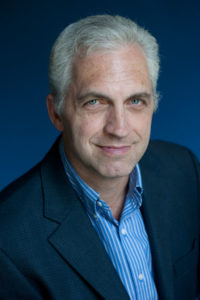
Despite the unstable economy and the difficult job market, nearly 90 percent of emerging adults (ages 18 to 29) are confident that they will eventually get what they want out of life with 83 percent even believing that “anything is possible,” according to the Clark University Poll of Emerging Adults.
This high level of confidence and optimism was reflected in the huge margin of emerging adults who voted for President Obama in Tuesday’s election. President Obama captured 60 percent of the youth vote, a margin of 24 points higher than the youth vote for Governor Romney, according to exit polls.
“One reason why emerging adults voted by such a large margin for Obama is that even though they know all too well how weak the economy is, most of them personally feel that their future is bright,” said Clark Psychology Professor Jeffrey Jensen Arnett, who directed the Clark study.
Despite frequent claims that they will be the first generation in American history to do worse economically than their parents, more than three-fourths of emerging adults agree that “overall, my life will be better than my parents’ lives have been.” This optimism is seen not only in the well-off and well-educated, but in emerging adults from lower socioeconomic backgrounds as well. “This may be because they have seen their parents struggle through life and they believe they have nowhere to go but up,” said Arnett. “Clearly, they do not believe that their families’ economic struggles will prevent them from having the kind of life they want.”
Emerging adults tend to experience feelings of stress and uncertainty about their current stage in life, however. A large majority of emerging adults feel that this time of their lives is stressful (72 percent), full of uncertainty (65 percent) and full of changes (84 percent).
“The study results show that emerging adulthood is an emotionally complicated time of life,” said Arnett, who sees their self-belief as a source of strength. “They get criticized for expecting too much out of life, but their optimism is what allows them to get up again during a decade when most of them get knocked down repeatedly.”
The Clark University Poll of Emerging Adults is based on 1,029 interviews of 18- to 29-year-olds nationwide. The margin of error is +/- 3.06 percent. A mixed-mode methodology was used for this project. Visit www.clarku.edu/clarkpoll.
Founded in 1887 in Worcester, Massachusetts, Clark University is a small, liberal arts-based research university addressing social and human imperatives on a global scale. Clark is emerging as a transformative force in higher education today. LEEP (Liberal Education and Effective Practice) is Clark’s pioneering model of education combining a robust liberal arts curriculum with life-changing world and workplace experiences. www.clarku.edu


